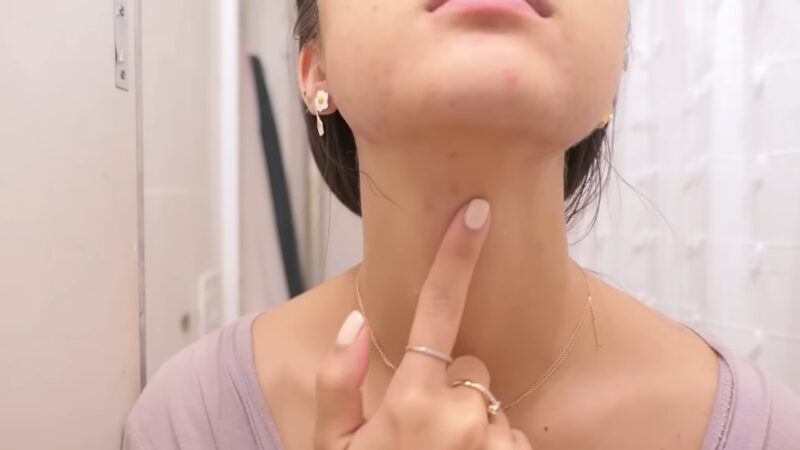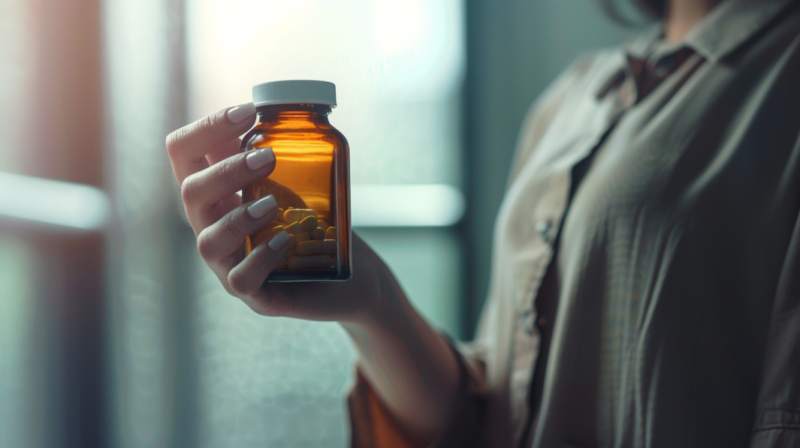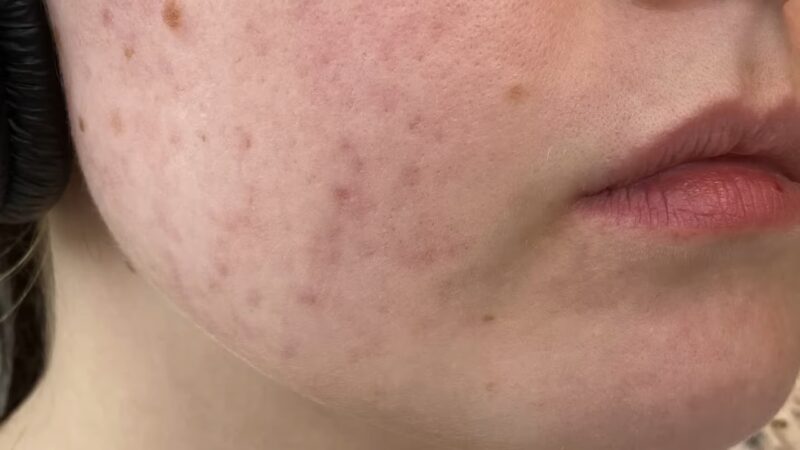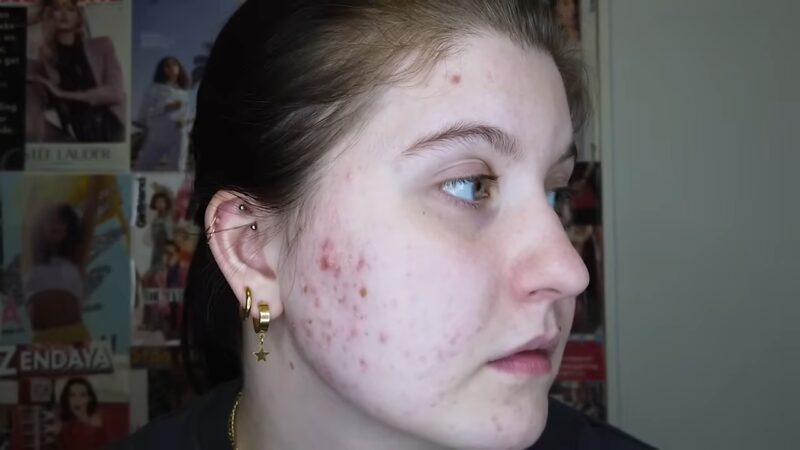Are you having trouble clearing your acne even though you’re eating well for your skin?
The issue might be how well your body digests and absorbs those nutrients.
In my practice, I often see people with acne who have poor digestion, leading to nutrient deficiencies despite a healthy diet.
Why does poor digestion contribute to acne? I’ll explain the connection and give you practical tips to address acne caused by digestive issues.
9 Tips to Improve Digestion and Clear Your Acne

1. Check for Underlying Infections
If you have symptoms like burping after meals, loss of appetite, nausea, changes in bowel movements, or stomach pain, it’s important to rule out any infections. Stool tests and other medical procedures can help identify infections or inflammation in the digestive tract.
2. Practice Mindful Eating
Chewing your food thoroughly is crucial. Make sure to sit down and eat without distractions—no scrolling on Instagram, watching TV, or being otherwise engaged. Being present and aware while eating helps stimulate digestive juices and signals your body when it’s full.
3. Incorporate Digestive-Boosting Foods
Bitter foods can stimulate the production of digestive juices. Examples include:
- Apple cider vinegar
- Rocket
- Lemons
- Artichoke
- Dandelion greens
- Fennel
- Chicory
- Ginger
4. Load Up on Fiber
Getting enough fiber in your diet can significantly improve your health. Fiber helps keep your digestive system moving and feeds the beneficial bacteria in your gut.
Without sufficient fiber, your gut microbes have nothing to eat, so they start feeding on your gut’s protective lining, causing inflammation and other issues. Make sure to eat plenty of fruits, veggies, and gluten-free grains to support your gut health.
5. Minimize Toxins and Pesticides

While you can’t completely avoid toxins, you can reduce your exposure. Choose organic produce, especially from the Dirty Dozen list, to avoid pesticide contamination that can harm your gut health. Adding plants to your home can also help purify the air and improve indoor air quality.
6. Filter Out the Chlorine
Even if you’re not drinking pool water, you might still be consuming chlorine from your tap water. Chlorine kills bacteria, which is good for pools but bad for your gut flora.
To protect your gut microbiome, drink purified water and limit your time in chlorinated water. Keep your mouth closed in the pool to avoid ingesting chlorine.
7. Use Antibiotics Responsibly
Antibiotics can be necessary, but overuse can harm your gut bacteria. They kill both harmful and beneficial bacteria.
If you need to take antibiotics, support your gut health by eating high-fiber foods, taking a multi-strain probiotic, and consuming fermented foods like kefir, yogurt, miso, and kimchi. Look for dairy-free and low-sodium versions if you’re on an acne treatment plan.
8. Check Your Medications

Some prescription medications, including birth control pills and anti-anxiety meds, can affect your gut health. Even common painkillers can alter your gut microbiome. Accutane, used for severe acne, can also impact gut health.
If you’re on long-term medication, talk to your doctor about options that have the least impact on your gut. Follow the same gut-supporting advice as when taking antibiotics.
9. Keep Up with Your Oral Hygiene
Gut health starts in the mouth. Dental decay can introduce harmful bacteria into your gut through your saliva. Brush and floss at least twice a day and limit sugary foods to prevent decay and support your gut health.
Why Digestion Issues Cause Acne

Not Chewing Properly
Digestion starts in the mouth, where saliva contains enzymes that break down food. If you eat too quickly and don’t chew well, your stomach has a harder time breaking down food, leading to poor nutrient absorption.
This can cause bloating and discomfort. Large food particles that reach the intestines can ferment and cause more bloating.
Low Stomach Acid or Enzymes
Having low stomach acid or digestive enzymes means your body can’t break down food into absorbable nutrients effectively, causing deficiencies in protein, iron, zinc, and vitamin B12. Low stomach acid also increases the risk of bacterial overgrowth in the gut because it can’t kill bacteria as effectively.
Gut Lining Issues
If your gut lining is damaged or inflamed, you might experience loose stools or constipation, affecting how quickly food moves through your intestines. This impacts nutrient absorption and can disrupt the balance of gut bacteria, leading to further digestion problems and nutrient deficiencies.



